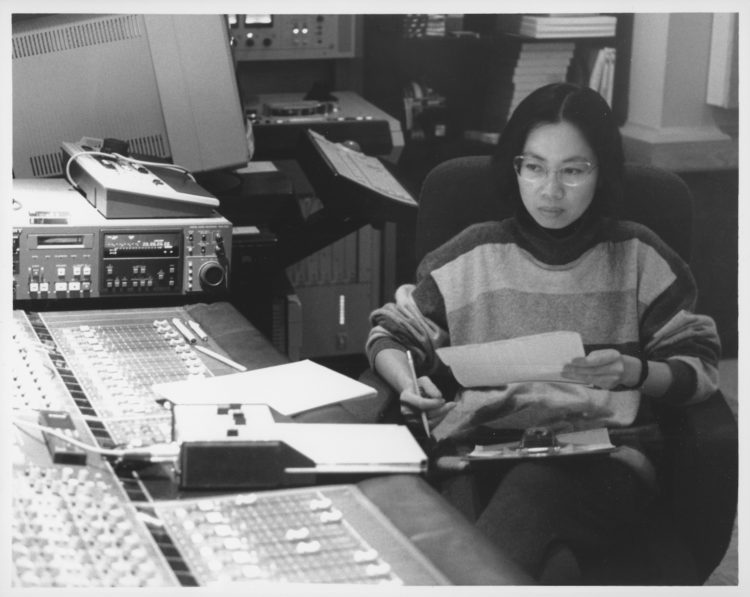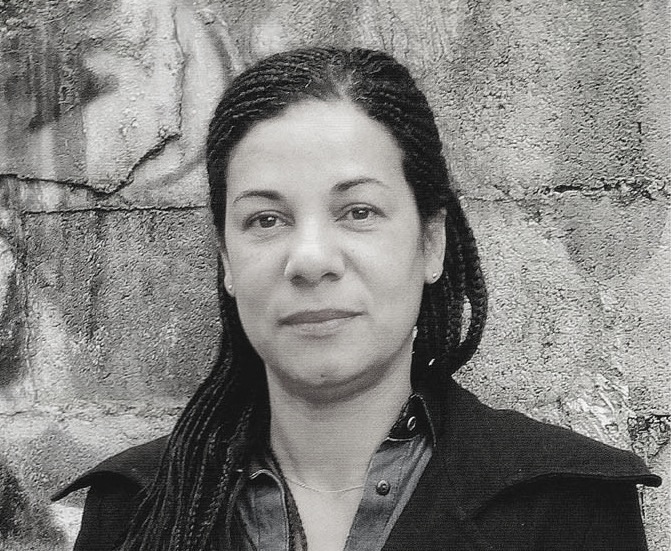Round-table
Design by Lisa Sturacci studio © AWARE : Archives of Women Artists, Research & Exhibitions
A Story named Joy marks the first gathering of NEST, a transnational network of non-profit organizations, collectives, and independent structures working at the intersection of visual arts, activisms, and gender studies, created at the initiative of AWARE. It will bring these non-institutional voices from diverse cultural contexts to enter in dialogue with the Parisian audiences, focusing on practices that underscore the importance of collective work as a feminist strategy.
The title of the event, co-produced with the Palais de Tokyo, honors feminist filmmaker, composer and writer Trinh T. Minh-ha who will participate as a keynote speaker. It celebrates the joy of sharing and listening to stories that rely on our collective telling and remembering1. Building on several months of exchange within three working groups, NEST members will present their work, their archiving practices and their approaches to highlight women and non-binary artists in the contemporary art worlds and the histories of art. The objective of this process is to unite forces and explore alternative methods of creating and disseminating knowledge, rethinking art through a feminist lens.
The discussions will conclude with a performance by Myriam Mihindou, the 2022 AWARE prize recipient, in dialogue with her solo exhibition “Praesentia”, co-produced by AWARE, Palais de Tokyo, and DCA (French National Network of Contemporary Art Centres).
The event will be primarily in English.
Reservation required. Free registration here
A separate reservation is required for the REBREATHING performance
Trinh T. Minh-ha: “Woman, Native, Other: Writing Postcoloniality and Feminism”, 1989.
Palais de Tokyo
In this discussion, NEST members will share information about their work on reframing art through feminist approaches and on the way they organize their activity within their specific contexts. It will touch upon the various strategies member organizations utilize to maintain their existence as an independent structure in different circumstances, including political animosity or economic barriers.
Participants:
A.I.R Gallery (USA)
City of Women (Slovenia)
Contemporaines (France)
DAVRA (Central Asia)
Fast Foward (UK)
Feminist Center for Creative Work (USA)
Haven for Artists (Lebanon)
WOPHA – Women Photographers International Archive (USA)
Mujeres en Artes Visuales (MAV) (Spain)
Zimbabwe Association of Female Photographers (Zimbabwe)
Many NEST structures have constituted new archives of women and non-binary artists that have not been considered by institutions. Their practices, sometimes self-taught, include conserving, organizing, digitizing, transmitting, and curating the materials to challenge dominant narratives in art and uncover the stories they hide. In this round table, participants will present these practices and highlight new ways of activating the archive.
Participants:
AFSAR: Asian Feminist Studio for Art and Research (East Asia)
Asia Art Archive (Hong Kong/ India)
Centre Audiovisuel Simone de Beauvoir (France)
The Feminist Institute (USA)
Katarzyna Kozyra Foundation [Secondary Archive] (Poland)
La Lleca (Mexico)
Women’s Art Register (Australia)
Initiative for Practices and Visions of Radical Care (France)
Njabala Foundation (Uganda)
Power relations lay at the core of normative representations. In the tuning in with the forces of a life event, one can say that form is attained only to address the formless. Rather than merely speaking of production of images, sound, texts and meaning, one can approach visual, verbal, musical formation as a net of under-and crosscurrents— a co-manifesting of forces. How to pursue joy in our daily activities in these times of darkness? Possibilities of grouping, disassembling and reassembling anew remain indefinite. The everyday can be dangerously creative. It is difficult to pin it down, because everyday happenings allow no hold and almost no control. The focus here is on the diverse registers that forms of resistance play with in the everyday, including for example the practices of the body as living archive in decentering and decolonizing a work; the commitment to feature multiplicity through the positioning of voices, as well as to manifest infinity within the finite.
Trinh T. Minh-ha
A filmmaker, writer, music composer and Distinguished Professor of The Graduate School at the University of California, Berkeley, Trinh T. Minh-ha was the recipient of many awards, including the New:Vision Award, CPH:DOX Film Festival, 2022; the Wild Dreamer Lifetime Achievement Award at the Subversive Festival, Zagreb, Croatia, 2014; the Lifetime Achievement Award from Women’s Caucus for Art, 2012; and the Trailblazers Award, MIPDOC, Cannes Documentary Film, France, 2006.
Her work includes: nine feature-length films (including among others What About China? 2022, Forgetting Vietnam 2015, Night Passage 2004, and Surname Viet Given Name Nam, 1989 ) honored in over sixty-four retrospectives around the world; several large-scale collaborative installations such as The Ocean in A Drop (Stuttgart, 2022) In Transit (Manifesta 13, Marseille, 2020), L’Autre marche (Musée du Quai Branly, Paris 2006-2009), Old Land New Waters (3rd Guangzhou Triennale, China 2008); and numerous books, more recently Traveling in the Dark (2023), The Twofold Commitment (2023), Lovecidal. Walking with The Disappeared (2016), Elsewhere, Within Here (2011), Framer Framed (1992) and Woman, Native, Other (1989).
Myriam Mihindou invites nine dancers to share a performative experience with the audience. She proposes strategies for regaining oxygen, breath and energy, and reconnecting with the forces of nature.
More information on the website of Palais de Tokyo
Myriam Mihindou
Myriam Mihindou is a multidisciplinary artist with a diverse range of practices: sculpture, installation, drawing, writing, photography, video, and performance. She addresses themes related to identity, memory, language, ritual, the living, women’s condition, spirituality, and ecology. Her practice could be described as both curative and artistic. A traveler and nomad, the artist works with physical empathy with specific environments, situations, and people, focusing on healing individual and collective wounds caused by various forms of subjugation or domination.
Born in 1964 in Libreville (Gabon), Myriam Mihindou lives and works in Paris. She will participate in the Lyon and Gwangju Biennales in September 2024. Her solo exhibition “Ilimb, the Essence of Tears” is on view at the Musée du Quai Branly (Paris) until November 2024. Recent solo exhibitions include: “Epiderme” (La Verrière, Brussels, 2022), “El teatro de las memorias” (CAAM, Las Palmas, 2022), “Silo” (Transpalette, Bourges, 2021). She has also taken part in numerous group exhibitions. Winner of the AWARE Prize in 2022, she wasin residence at Villa Albertine (New York) in 2023. She is represented by the Maïa Muller Gallery (Paris) and Saana Gallery (Utrecht).















